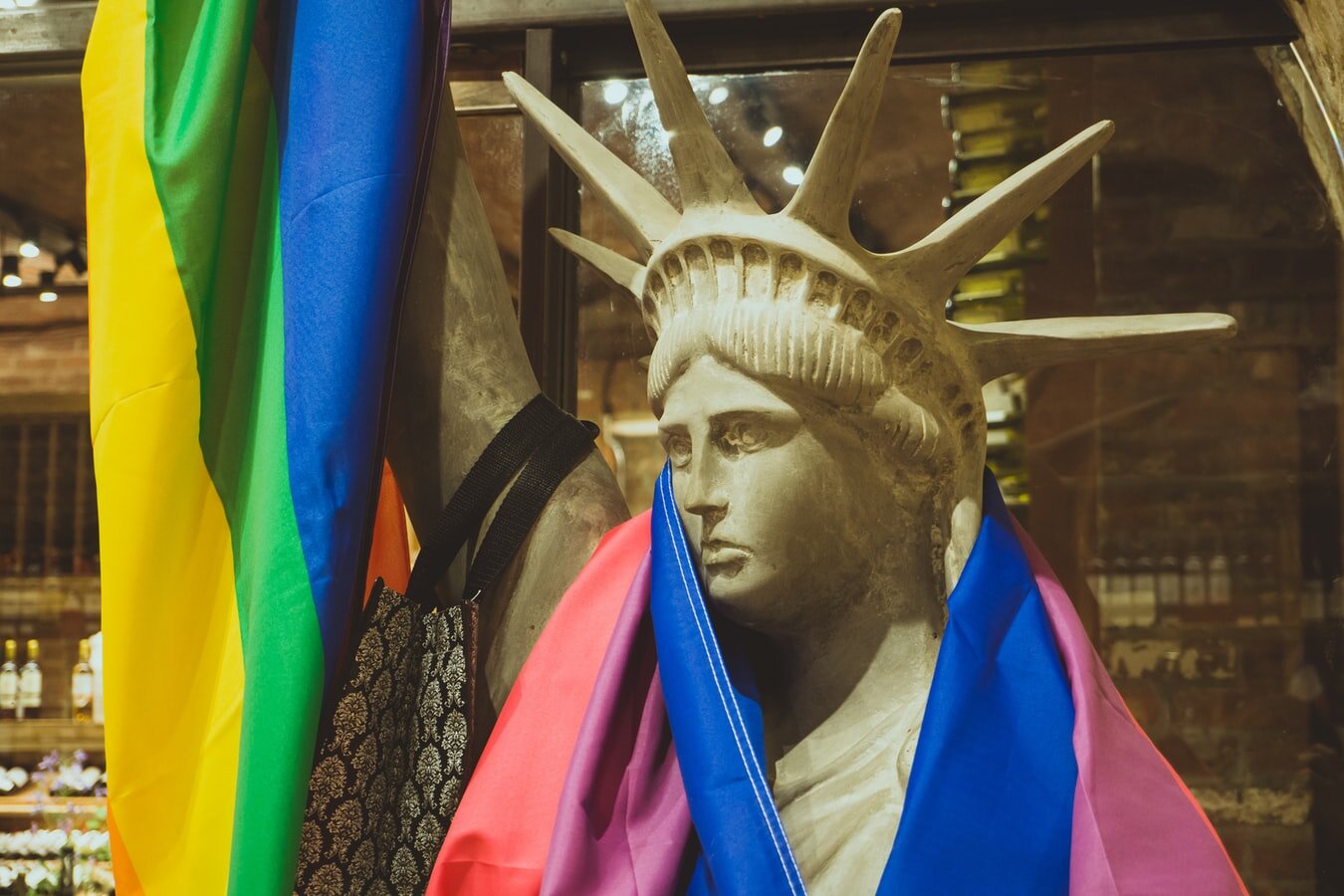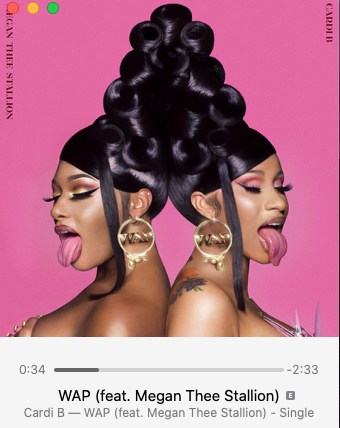A Comprehensive Guide On Allyship
Cassandra Angelic
Everyone makes it seem like it’s clear cut, but there isn’t necessarily a standard for being an ally. Being politically correct and trying your best not to offend someone, is the bar that is often set. I learned, while going through life, that is not the case. Many of the groups and issues that people represent and try to defend, are fairly new to me. I don’t have a background where most of this information was readily available. It felt like everyone knew more about everything than I did and it took a lot to get where I am at today.
That being said, here’s a comprehensive guide on allyship and it’s different forms. For the purposes of this article, an ally is an individual who tries to uplift or defend a group of people who are commonly underrepresented. This individual can fit one or more of the following categories; good, bad, and beginner.
I recently took on a temporary producing position for a film that featured a cast of trans women, and at this production I interacted with every form of ally. Having worked on a commercial with this group before, I was already comfortable with the job. In the days leading up to filming, there were a few meetings held to get logistics in order before productions. The final meeting we held the day before filming was with the glam team, director, and producers. At this meeting the head stylist was trying to make sure we were all on the same page for the looks we wanted each woman to have. When she went into detail about the looks, we switched over to makeup and she said, “every girl needs a look, any ideas on the looks they’ll have?”. The executive producer, a trans woman, told her how her go to look is bareface. She went into extensive detail on how she prefers not to wear any makeup at all. Her delivery was so passionate, the head stylist remained silent for the rest of the meeting.
The following morning, on the first day of production, I was reviewing the meeting with the glam squad, when the head stylist asked me, “What did I do wrong yesterday? I try to treat everyone the same and I really would like to know where I went wrong.”
What she said to me is something I’ve heard myself say when I first began my journey to learning how to be an ally. While we were there a few more people gathered in, saying similar words of affirmation and hoping to gain some clarity before the cast arrived. I explained to them that trans women are constantly focused on their image and body dysmorphia, it is part of their journey when they are learning more about the person they want to be. Makeup is no longer just makeup, it is a tool used to carve out what it is they wish to see. The use of makeup or lack thereof has a bit more weight for someone who is transitioning than someone who isn’t.
The group that was around me were in the early stages of being an ally; so beginners. After further discussion, I was able to teach the group that none of this is common knowledge and there are different things you can do or say to be more inclusive to all groups without having to constantly keep their differences in the back of your mind. I explained the importance of asking open ended questions and making open ended statements. The example used was, when trying to dress a client, instead of doing something like boxing them into a look, ask them the kind of stuff that they would like to see themselves in. It is very easy to assign gender to things and to assume things for others. It’s less about assuming things and more about doing the opposite, trying not to assume unless someone explicitly confirms something for you. It’s also about being open to learn and if you’re really not sure about something google it, other people have asked the question that you’re asking.
Performative Ally Ship - by Seventeen
From being a beginner ally, there are two different routes you can take, being a good ally or being a bad one. A few examples of bad allyship including performative, exploitative, and gatekeeping. These forms are the most invasive forms of being an ally. It is important to note that being a bad ally doesn’t equate to being a bad person.
Performative allyship is the kind that is seen on social media. The person who posts the black square on instagram in solidarity with black lives matter, but then doesn’t keep their close friends in check when they bash the movement. Performative allyship shows the world that you’re paying attention to trends, but it also means you may not be paying attention to where the trends are coming from or why they are relevant. Essentially, it is putting on a show to fit in.
The #blacklivesmatter statements put out by some corporations is a great lesson in performative allyship. Some of them don’t actually use the hashtag, and others will not use key words that have been used to describe the movement. #Blacklivesmatter is a movement used to highlight police brutality and inequality that black people face. When corporations put out statements around the time when protests were being highlighted by major news channels, they used roundabout language to seem like they were in favor of the movement without seeming like they were in too deep with it. Police brutality and black lives, two of the most important phrases used to describe the movement, can often be found missing from official statements, as a neutral way of acknowledging that protests are happening, but staying safe from the backlash they might receive when picking a side.
Another more blatant example is around pride month. In June, corporations will put out their same exact products but throw a rainbow flag on it in support of pride. When pride month is no more, all the strong support for the LGBTQIA+ movement goes back into the closet. Tinder has put out a series of videos featuring people of different genders and sexualities across the spectrum as a way to highlight the group. However it is the people that are part of this same group who are actually banned from using the app, trans women are often banned and reported on tinder simply for being trans, and the company has done nothing to resolve it outside of handling complaints individually.
Exploitative allyship is similar to performative and they often overlap. Exploitative allyship is when the issue is used to further your own cause or for some type of gain at the sake of the oppressed group. Breona Taylor becoming a commodity and her name being used to produce films and products is a way of exploitative behavior masked as allyship. It is easy to see when companies are being exploitative or performative, but when individuals are doing it, sometimes it isn’t done in such an explicit way.
When I was working on the film, it was often debated how the cast would be compensated for their time spent and their personal journeys that they shared for the sake of the film. At face value, it seemed like the cast would be treated fairly. But as discussions continued, it was believed that the cast should be thankful for the experience of being in a film that might eventually be featured on major media outlets. This form of allyship tries to highlight the group, but when people are taking the time out of their day to actively be part of a project of this scale, they end up missing out on other opportunities.
Financial gain may not seem like a big deal to some, but a group of trans women are some of the most discriminated against in the country. Trans women don’t have equal rights, especially when it comes to employment and housing. Having them work on a project without guaranteed compensation where they would have to take time off work in order to be present for it, is harmful behavior.
Which brings us to gatekeeping. This form of allyship, usually involves belittling the intelligence of another group or individual; or making it seem like they are not informed enough to join in for supporting the issue or cause. Gatekeeping is what happens on social media in the form of cancel culture. This form of allyship doesn’t encourage growth and eliminates further discussion to help a person learn more about the cause that they wish to support. It is easy to become a gatekeeper, when you forget where you began on your journey to being where you are, seeing others make mistakes can be harder to forgive. Like if someone says something harmful, like the stylist who said all the transwomen needed makeup looks, it was easy to get upset, but it is harder to sit down and explain where they went wrong. Gatekeeping can happen to anyone be it intentional or not, and it is part of learning how to be an ally.
Being a good ally doesn’t have a clear path. The only way to be a good ally is to be willing to learn, and open to unlearning some of the harmful things that may be instilled in you. It is a journey of development and growth that doesn’t have a finish line. There is no perfect ally, just like there isn’t a perfect person. Anyone can be a good or bad or beginner ally. It is a journey that as long as you're willing to start, that’s what matters most. Being a good ally doesn’t equate to being a better person, all it means is that you are trying your best for a person that may not be like you.








